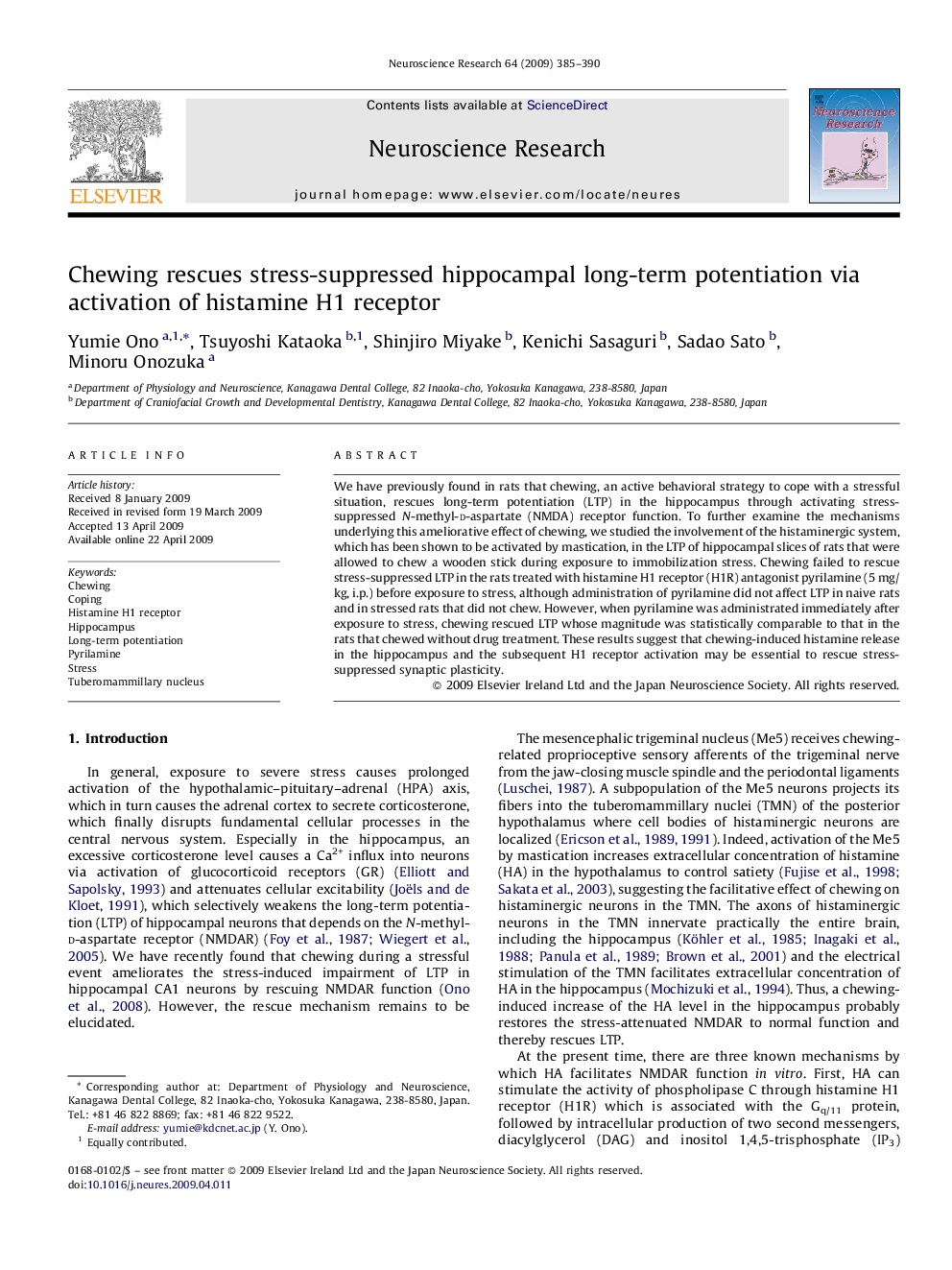| Article ID | Journal | Published Year | Pages | File Type |
|---|---|---|---|---|
| 4352206 | Neuroscience Research | 2009 | 6 Pages |
We have previously found in rats that chewing, an active behavioral strategy to cope with a stressful situation, rescues long-term potentiation (LTP) in the hippocampus through activating stress-suppressed N-methyl-d-aspartate (NMDA) receptor function. To further examine the mechanisms underlying this ameliorative effect of chewing, we studied the involvement of the histaminergic system, which has been shown to be activated by mastication, in the LTP of hippocampal slices of rats that were allowed to chew a wooden stick during exposure to immobilization stress. Chewing failed to rescue stress-suppressed LTP in the rats treated with histamine H1 receptor (H1R) antagonist pyrilamine (5 mg/kg, i.p.) before exposure to stress, although administration of pyrilamine did not affect LTP in naive rats and in stressed rats that did not chew. However, when pyrilamine was administrated immediately after exposure to stress, chewing rescued LTP whose magnitude was statistically comparable to that in the rats that chewed without drug treatment. These results suggest that chewing-induced histamine release in the hippocampus and the subsequent H1 receptor activation may be essential to rescue stress-suppressed synaptic plasticity.
